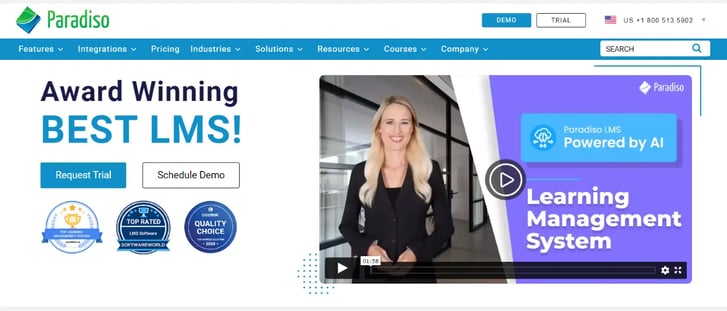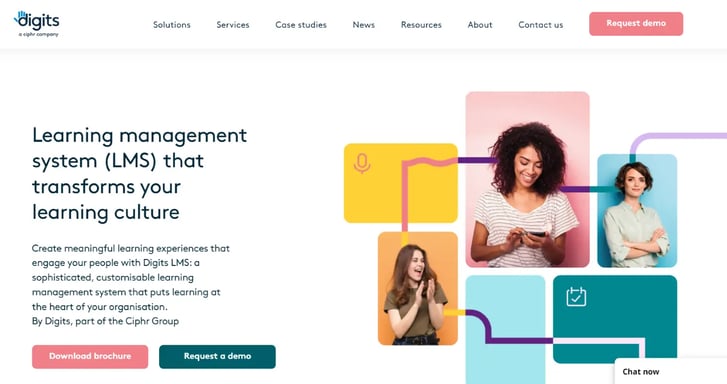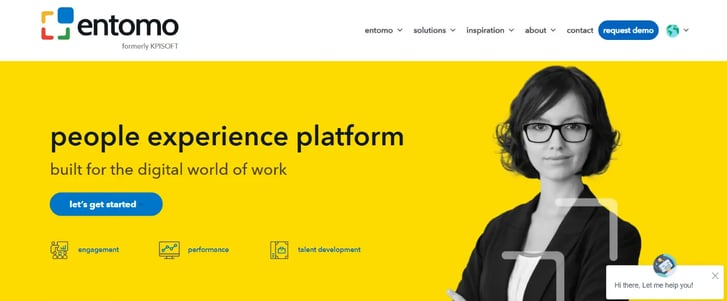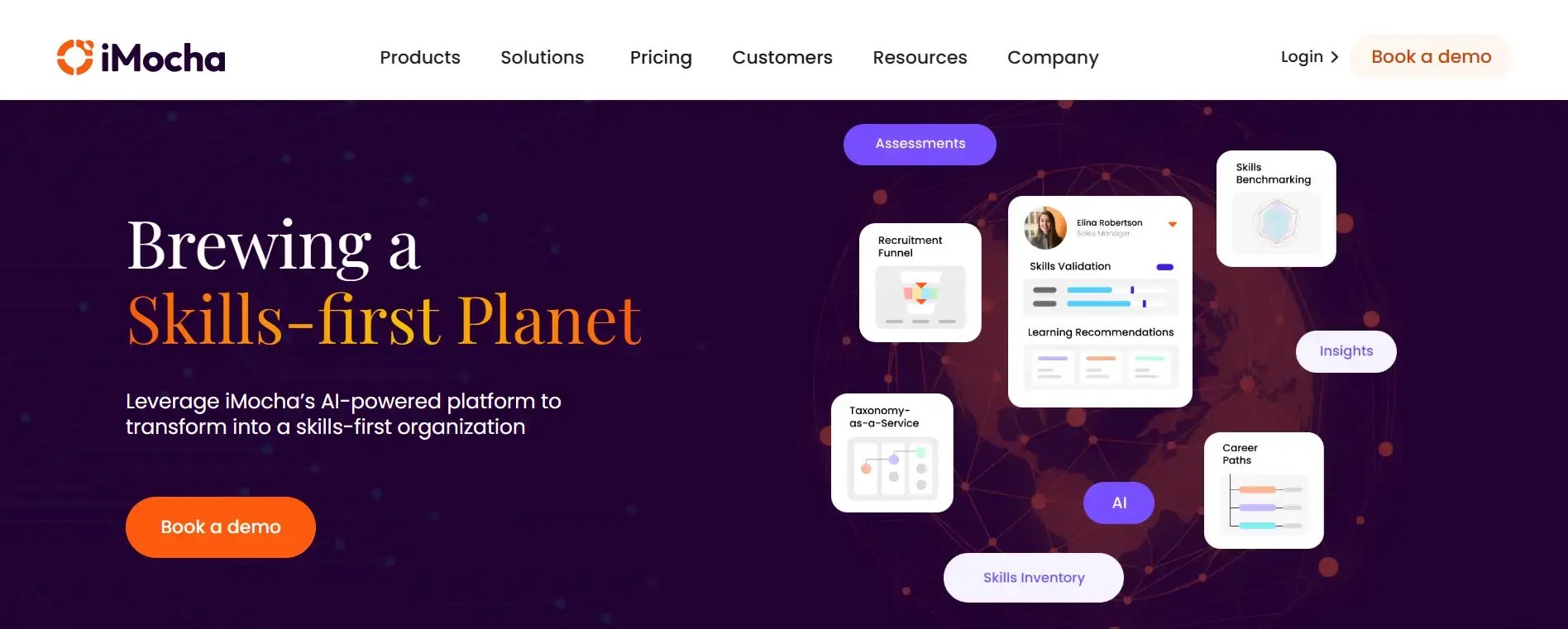Rapid technological change and evolving job requirements have widened the gap between the skills organizations need and those employees currently possess. A LinkedIn report shows that since 2015, skill sets for jobs have changed by 25%, and this number could double by 2027.
As a result, conducting a skills gap analysis is no longer optional it has become essential for effective talent strategy.
What Are Skills Gap Analysis Tools?
Skills gap analysis tools are specialized software platforms that help organizations measure the difference between the skills their employees currently have and the skills needed to perform their roles effectively.
These tools often include capabilities from skills assessment platforms, performance management systems, and 360-degree feedback tools, working together to provide a comprehensive view of workforce strengths and gaps.
Key Features to Look for in Skills Gap Analysis Tools
When selecting a skills gap analysis platform, prioritize tools that offer:
- Skills Gap Analysis & Benchmarking: Compares employee skills against role-specific requirements and benchmarks them against industry standards and trends.
- Skills Management: Supports structured skill libraries that align with job roles, enabling scalable tracking and updates across the organization.
- Role-Based Skills Mapping & Taxonomy: Enables the creation and management of skill frameworks, taxonomies, and ontologies for consistent workforce planning.
- Feedback and Performance Systems: Integrates 360-degree feedback and performance data to provide a comprehensive view of employee capabilities.
- System Integrations: Seamlessly connects with ATS, LMS, HRIS, and performance systems to ensure smooth data exchange and end-to-end talent decision support.
Here is a curated list of top 10 skills gap analysis tools in 2026, each offering features tailored to different organizational needs.
|
Table of Contents |
Top 10 Skills Gap Analysis Tools
1. iMocha
iMocha is a skills gap analysis tool that supports hiring, upskilling, and internal mobility. Its Skills Intelligence Cloud enables organizations to identify skill gaps, define skill profiles for candidates and employees, and develop targeted training plans. With more than 3,000 skills across technical, functional, and soft skill areas, it offers a comprehensive solution for organizations focused on workforce transformation.
Key Features:
- Skills Assessments: Over 3,000 customizable assessments across technical, functional, and soft skills for evaluating current employee competencies.
- AI-Powered Skills Gap Analysis: Automatically compares employee skills against role requirements to highlight gaps and recommend targeted development.
- Skills Intelligence Cloud: Delivers real-time insights and benchmarking using skill profiles, proficiency levels, and workforce data.
- Upskilling & Reskilling Recommendations: Generates personalized learning plans aligned with business objectives and individual performance goals.
- Strategic Workforce Planning: Supports taxonomy creation, role-based ontologies, and future-proofing talent pipelines through data-backed planning.
G2 rating: 4.4/5 (276 reviews)
Top Clients: Capgemini, Ericsson, Deloitte, Fujitsu
Pricing: Visit iMocha's pricing page for more details.
2. Paradiso Solutions

Paradiso Solutions is an e-learning platform that combines an LMS with skills gap analysis capabilities. It enables organizations to evaluate employee skills using self and manager ratings, generate visual reports, and recommend personalized learning paths based on identified gaps. The platform supports both corporate and educational use cases with modular features and flexible deployment.
Key Features:
- Skills Gap Identification: Compares self-assessments and manager evaluations to highlight areas for improvement and suggest relevant training.
- LMS Integration: Includes a built-in learning management system to deliver content, track progress, and support skill development.
- Learning Pathways: Offers multitenant learning paths that can be customized for different departments or learner groups.
- Visual Reporting: Provides diagrammatic skill summaries and usage insights to guide L&D strategies.
G2 rating: 4.1/5 (13 reviews)
Top Clients: Webex, Woo Commerce, One Login, Salesforce
Pricing: $5.50 /user (per month)
|
Looking for skills gap analysis tools that can help you boost your employees' performance? |
3. digits

Digits is a digital learning platform that integrates LMS and LXP features with skills gap analysis. It enables organizations to tailor learning experiences, identify gaps, and recommend training aligned with individual development needs. Its modular system supports learner engagement while offering control to administrators for managing content and monitoring progress.
Key Features:
- Integrated Skills Gap Analysis: Identifies gaps based on learner activity and recommends targeted training within the platform.
- Customizable LMS: Allows organizations to tailor the system to specific roles, teams, or business units.
- Learner-Centered Pathways: Curates relevant content based on individual progress and needs.
- Completion Tracking: Monitors learning milestones and generates progress data through its reporting tools.
G2 rating: NA
Top Clients: Honda, Mitsubishi Motors, CocaCola, RBS
Pricing: $2400.00 /year
|
Unable to determine which tool can aid employees in upskilling themselves? |
4. 360Learning 
360Learning is a collaborative learning platform that integrates skills gap analysis with its learning management system. It focuses on peer-driven knowledge sharing by identifying internal experts and leveraging them to close skill gaps through custom content and real-time feedback. The platform is well-suited for companies prioritizing upskilling from within.
Key Features:
- AI-Driven Skills Mapping: Detects gaps and recommends relevant training by identifying in-house subject matter experts.
- Collaborative Learning: Empowers employees to create and share courses, accelerating peer-to-peer development.
- Rapid Course Authoring: Enables quick creation of training content with built-in tools and templates.
- Real-Time Feedback: Supports upvoting and comment features to gather learner input and adapt content accordingly.
G2 rating: 4.6/5 (437 reviews)
Top Clients: LVMH, Toyota, Aircall, Similarweb
Pricing: $8.00 /user (per month)
5. Entomo

Entomo, formerly KPISOFT, is a performance management platform that incorporates skills gap analysis into goal tracking and employee development. It combines behavioral science with analytics to align individual skills with business objectives, making it a good fit for distributed or remote teams managing performance at scale.
Key Features:
- Skills & Performance Insights: Links skill gaps with performance goals using advanced analytics and visual dashboards.
- Goal-Based Development: Aligns individual learning objectives with team and organizational targets.
- Behavioral Nudges: Encourages skill improvement through real-time recommendations and personalized insights.
- KPI Tracking: Monitors real-time achievement and adjusts learning paths based on outcomes.
G2 rating: 4.6/5 (83 reviews)
Top Clients: Bosch, Audi, Johnson & Johnson, Harman, CGI
Pricing: $15/user (per month)
There are also many skills management tools available. Here’s a list of top Skills Management Software along with the pricing structure to help you make an informed decision.
|
Struggling to identify which skills your employees need to stay ahead of your competition? |
6. Lepaya
Lepaya is a skills gap analysis tool that combines hard and soft skill development with business-driven learning. It integrates with HR systems to track outcomes and delivers targeted training that addresses real-world job challenges. The platform is often used by larger organizations to support leadership, digital, and communication skills development.
Key Features:
- Skill Gap Diagnostics: Aligns employee capabilities with business needs through tailored assessments.
- Blended Learning: Combines in-person coaching, digital modules, and exercises for comprehensive skill building.
- Business Impact Tracking: Measures learning outcomes against performance KPIs.
G2 rating: NA
Top Clients: Microsoft, Freudenberg, ING, KPMG, bynder,
Pricing: NA
7. TestGorilla
TestGorilla is an assessment platform that supports skills gap analysis across hiring and internal development. It offers a library of over 300 tests covering technical, cognitive, and behavioral skills. With fast setup and user-friendly dashboards, it enables companies to identify gaps and track improvement over time.
Key Features:
- Comprehensive Test Library: Covers a wide range of skills from coding and problem-solving to communication and personality traits.
- Skills Gap Insights: Compares baseline competencies to job role requirements, supporting training and hiring decisions.
- Easy Setup and Delivery: Enables quick deployment of assessments for individuals or teams.
- Performance Dashboards: Tracks results and trends across departments with simple, visual reporting.
G2 rating: 4.5/5 (1,329 reviews)
Top Clients: Paypal, EQUIFAX, PEPSICO, instacart, Revoult
Pricing:
Starter: $83 USD per month
Pro: $127 USD per month
8. GrowthSpace
GrowthSpace combines AI-driven analytics with one-on-one coaching and mentoring to close individual and team skill gaps. The platform links development plans to business goals and matches employees with external experts for targeted, outcomes-based learning.
Key Features:
- AI-Based Skill Matching: Connects employees with coaches based on identified skill gaps and organizational priorities.
- Personalized Development Plans: Aligns learning sessions with specific performance outcomes.
- Integrated Feedback Loops: Tracks progress with real-time feedback and measurable impact on job performance.
- Flexible Delivery: Supports individual coaching, team workshops, and group training across global teams.
G2 rating: 4.8/5 ( 249 reviews)
Top Clients: ServiceNow, Baker Hughes, SIEMENS, Paypal, Microsoft
Pricing: Custom pricing based on number of sessions, and size of team.
9. MuchSkills
MuchSkills offers a visual approach to skills gap analysis, helping teams map, assess, and align skills with business needs. Its intuitive interface makes it an ideal skills gap analysis software for startups and small to mid-sized teams looking for a quick, collaborative view of skill strengths and shortages.
Key Features:
- Visual Skill Mapping: Interactive dashboards allow teams to map skills by role, department, or project.
- Templates for Skill Frameworks: Provides ready-to-use structures to help define and track required skills.
- Real-Time Insights: Identifies gaps and overlaps across individuals and teams, aiding in better resource allocation.
- Collaborative Updates: Enables team members to self-assess and update skills for transparency and planning.
G2 rating: 4.5/5 (3 reviews)
Pricing:
For teams of up to 100 members: €5 per month
10. agyleOS
agyleOS is a skills gap analysis software tailored for agile teams. It combines skills mapping with team performance metrics to quickly identify skill gaps and recommend training or hiring actions. The platform is especially effective for fast-paced, cross-functional environments.
Key Features:
- Skills-to-Performance Mapping: Links individual skills with agile team objectives to pinpoint gaps impacting delivery.
- Real-Time Dashboards: Visualizes workforce capabilities and highlights areas for development or recruitment.
- Team Alignment Tools: Supports agile ceremonies and planning with built-in visibility into team strengths.
- Scalable Across Roles: Adapts to growing teams and complex structures with role-specific skill tracking.
G2 rating: NA
Pricing:
Starter: €5/ user per month
Pro: €8/ user per month
Enterprise: Customized pricing
| Check out the top 5 skills analytics tools to bridge talent gaps, streamline learning paths, and future-proof the workforce. |
Conclusion
Among the tools listed, iMocha offers comprehensive capabilities to identify, analyze, and close skill gaps across the workforce. Its Skills Intelligence platform combines AI-driven assessments and a taxonomy of 3,000+ skills to deliver clear, actionable insights.
HR and L&D teams can benchmark skills, prioritize learning, and plan targeted development. With integrations across major HR systems, iMocha supports a seamless skills-first approach to hiring, upskilling, and internal mobility, helping organizations stay agile and competitive.
FAQs
What is a skills gap analysis?
A skills gap analysis is a process that compares the skills employees currently have with those needed for specific roles or future business goals. It helps identify areas for improvement, guiding learning and development efforts to close those gaps effectively.
How to analyze the skill gap?
Start by checking employee skills through tests or manager reviews. Then compare these skills to the ones needed now and in the future. Tools like iMocha, TestGorilla, or Lepaya can help automate this process clearly.
What are the best tools for skills gap analysis?
Good tools include iMocha (AI-based tests), Lepaya (training connected to business goals), TestGorilla (wide testing range), GrowthSpace (expert coaching), and MuchSkills (visual mapping). The best choice depends on your company’s size and goals.
What is a skills gap analysis example?
A healthcare company adding telemedicine services found nurses lacked digital communication skills through a skills gap analysis. After specific training using a tool like iMocha, patient satisfaction increased by 22%.


